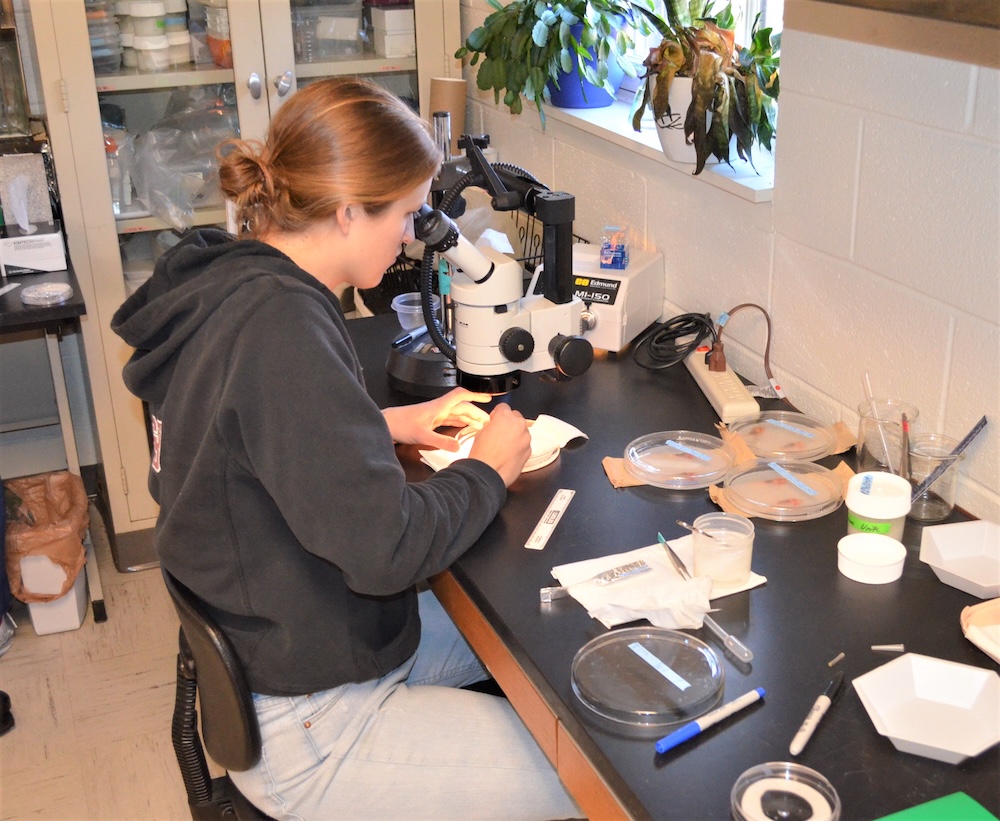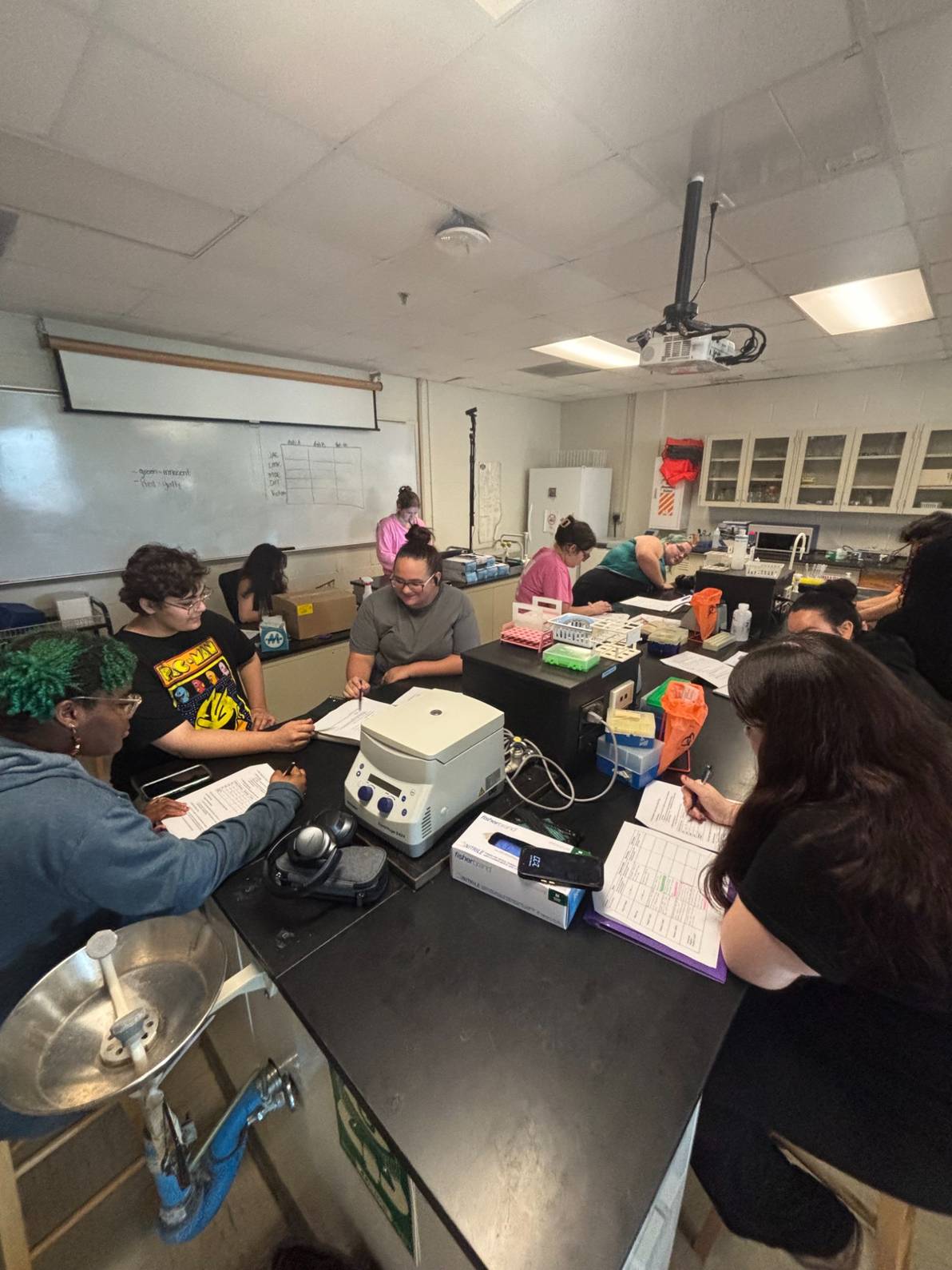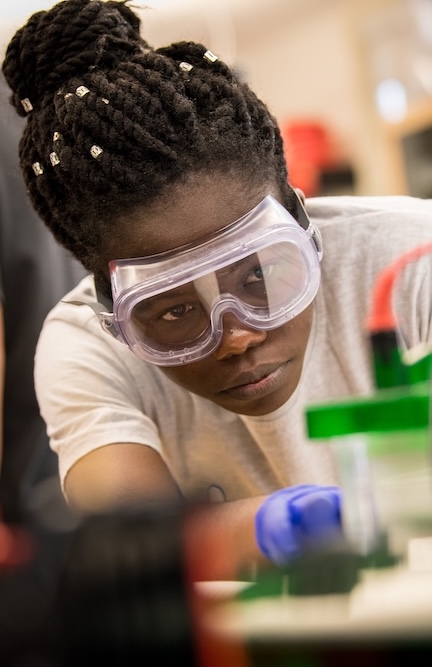Health Career Advising at SMCM
The Health Sciences Advisory Committee (HSAC) stands to provide advice and guidance to students interested in preparing for graduate programs in the health sciences. We advise any student from any major interested in a career in health sciences. We have worked with students as far as ten years post graduation to help them with their files.

How can HSAC help me?
- The HSAC holds periodic information meetings, working with the pre-health club, that often include a special guest visitor, often an alumnus, speaking about some element of health care.
- The HSAC encourages students to strengthen their profiles throughout their education at St. Mary’s College so that they are strong applicants when they do apply to graduate programs.
- Students applying to medical, vet, dental, and some other programs as requested undergo a mock interview with a committee of faculty who know them best. This experience often makes a huge difference when students go on to their actual first interviews.
What kind of schools does HSAC help me with?
- Medical Schools
- Veterinary Schools
- Most Dental Schools
- Optometry Schools
- Podiatry Schools
- Osteopathic Medical Schools
What does HSAC look like?
The HSAC chair is in charge of early advising. The chairperson holds weekly office hours and is the go-to person for questions and help in building files.
HSAC & Faculty Advisers
The HSAC chair distributes applicants to different advisers. Often an adviser has a particularly strong relationship with a student, having had them in classes or talked informally about the student’s career interests. Other times a student’s research interests overlap with an adviser and that makes a good fit. The chair often carries many of the older post graduate applicants. Your personal committee (the group of faculty members who will perform your mock interview and help write your committee letter of recommendation) will include two non-HSAC faculty members. Here are some tips for choosing the right professors for the job.
How to choose an adviser
- You have had for at least one class. They should be familiar with you in an academic setting.
- Are familiar with your academic and career goals.
- Know you well enough to be willing to use their free time for the mock interview.
- Will be able to provide helpful and candid feedback on your interview skills.
- Are reliable.
- Sometimes it is tricky to coordinate so many schedules for the interview, so choose faculty that you know you can count on to make a good effort to be involved.

Letters of Recommendation
One of the pre-health adviser’s roles is to write committee letters of recommendation for students applying to medical, and most dental, veterinary, optometry, podiatry, and osteopathic medical schools. Students interested in nuclear medicine, nursing, physical therapy, sports medicine, and many other programs that do not require a committee letter of recommendation, do not need to establish an HSAC file, but are encouraged to discuss their academic plan with the chair of the HSAC.
HSAC Meetings
There are periodic general meetings that all students are invited to attend, this is an especially good way to get a good overview of what is to come and how to prepare. Students also often come during weekly office hours to talk one on one about their progress and plans.
Students should plan to come to one or two meetings a year at the start to be sure they are on track and to have their questions answered. If a particular visitor is important to them (i.e. someone speaking about international medicine, veterinary medicine, how to pay for your medical degree), then students should plan to attend those sessions as well.

Connect with the HSAC Adviser
St. Mary's students and alumni can contact Dr. Mertz, psmertz@smcm.edu, to be added to the Google Classroom site for pre-health science resources.


